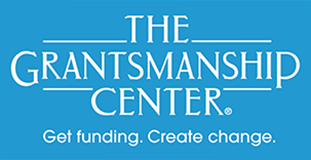- TRAINING
- WEBINARS
- CUSTOMIZED TRAINING
- NATIVE PARTNERS
- MEET THE GRANTMAKERS
- RESOURCES
- ABOUT US
Welcome!
No front page content has been created yet.
Follow the User Guide to start building your site. Subscribe to
Follow the User Guide to start building your site. Subscribe to
(213) 482-9860
(800) 421-9512
Los Angeles, CA 90017-1418
© Copyright 1996-2026 The Grantsmanship Center
(213) 482-9860 • (800) 421-9512
Los Angeles, CA 90017
© Copyright 1996-2025 The Grantsmanship Center


